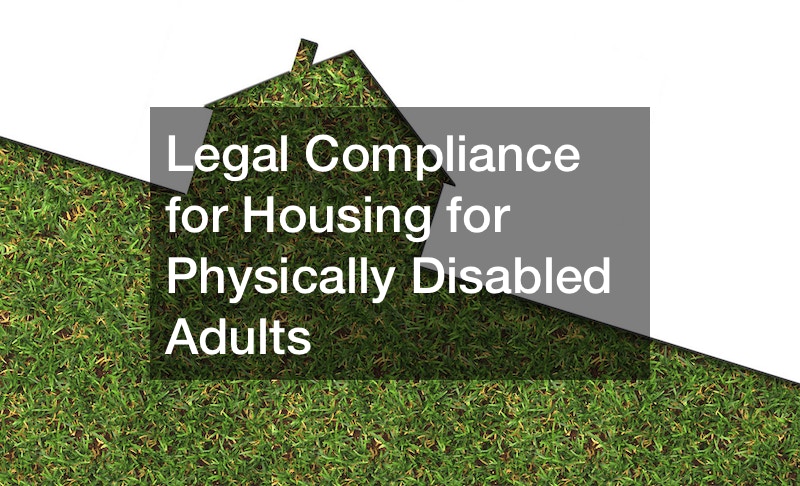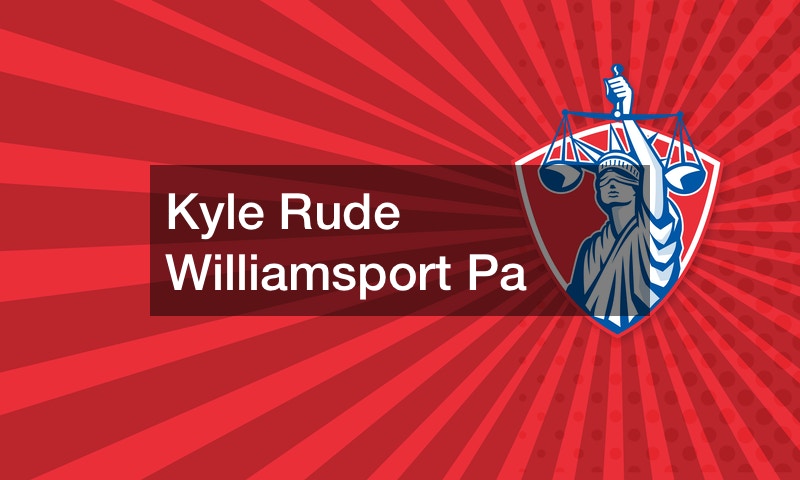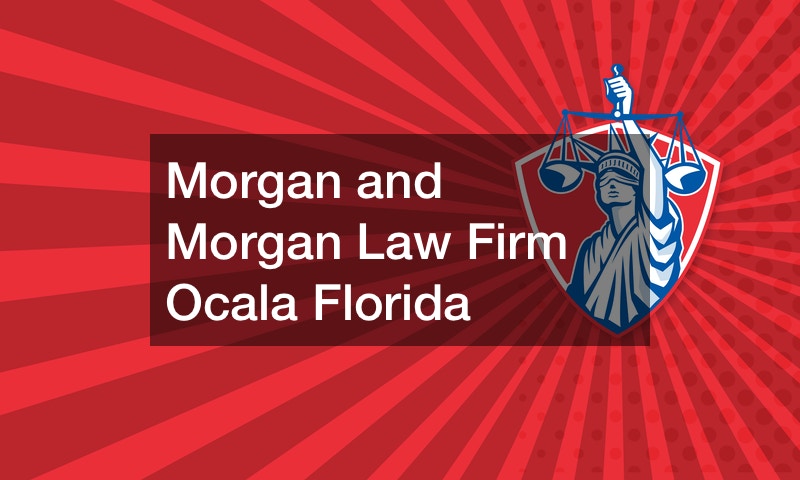
Finding a quality, budget-friendly space to call home is hard, but even harder for individuals with a physical disability. Statistics reveal that out of the over 500,000 homeless persons in the US, a staggering 25% have a disability.
But, there’s hope on the horizon–The US Department of Housing and Urban Development (HUD) and the Department of Health and Human Services (HHS) run funding programs and compliance guidelines to ensure equal housing opportunities and secure havens for disabled adults.
If you’re a landlord, don’t take them lightly–non-compliance could result in fines and even legal action. So, what exactly are these measures? This article is your guide to understanding legal compliance when offering housing for physically disabled adults.
Safety and Accessibility: The Cornerstone of Legal Compliance in Housing for Physically Disabled Individuals

Safety and accessibility and safety are the cornerstones of legal compliance for landlords who offer housing for physically disabled adults. According to the HUD and fair housing Act, landlords must create accessible and comfortable living environments when housingphysically disabled adults.
In other words, if you’re a property owner, you must adapt your rental property to accommodate the needs of tenants with disabilities, promoting equal housing opportunities and ensuring their comfort and safety. Here’s how to promote accessibility and comply with this measure when renting or leasing your property to physically disabled individuals:
Identify and Remove Barriers, and Obstacles
Assess your property to identify any obstacles that might hinder the mobility of physically disabled tenants. This can include addressing issues such as narrow doorways, uneven flooring, or inaccessible bathrooms.
Offer Mobility Enhancements
Providing mobility enhancements not only improves the living conditions of your physically disabled residents but also allows landlords to fulfil important legal compliance measures related to accessibility. That said, you should install wheelchair ramps to connect different levels of the property, thus allowing easy movement for wheelchair users. Also, have a paving company install paved pathways and parking spaces, and get grab cars strategically placed to create an inclusive and accessible living environment for all your tenants.
Provide Functional Housing Amenities

The Fair Housing Act requires architects, designers, and property owners to design properties with amenities that promote accessibility for the physically disabled. For instance, kitchens and bathrooms must not only have sufficient space but also have easily accessible countertops. That means you should adopt lowered porcelain countertop installation, lever-style faucets, and roll-in showers to make these spaces more functional.
Ensure Proper Property Sanitation
Property accessibility when housing physically disabled adults isn’t just about ensuring seamless mobility; it’s also about ensuring proper sanitation. This is because sanitation directly impacts the overall accessibility and livability of the property. For instance, to remain accessible to physically disabled residents, common areas, pathways, and facilities should be free from clutter, debris, or any obstacles that might hinder movement. To ensure proper sanitation and accessibility compliance when offering housing for physically disabled adults, landlords should:
- Enlist a professional septic pumping company: Regular sump pumping and timely sump pump replacement prevent water accumulation in your property, preventing mold growth and other potential hazards that might harm the well-being of disabled residents.
- Implement a consistent cleaning schedule for hallways, entrances, and other shared spaces to ensure they are clean, safe, and free from clutter.
- Regularly inspect and maintain accessible fixtures in bathrooms and kitchens, such as grab bars, to ensure they are functional, clean, and ready for use by physically disabled tenants.
Invest a Water Management Program
While water management might not immediately seem related to accessibility, it is crucial in creating an environment that is safe for individuals with disabilities.
A well-maintained water management system monitors the property’s plumbing and drainage system effectively. That prevents issues like leaks and flooding that could pose safety hazards and hinder accessibility for residents with mobility challenges.
Beyond promoting safety, having a water management program on your property means a plumbing system that functions optimally. The result? Disabled tenants are able to access personal care amenities such as bathrooms, showers, and sinks at any time, promoting their comfort and an independent lifestyle.
Offer Timely Property Maintenance

Part of adhering to safety compliance measures when providing housing for physically disabled adults is ensuring your property is structurally sound. One way to ensure your property remains structurally sound and safe is by enlisting regular roof inspections and prompt roof repairs. A well-maintained roof prevents leaks, water damage, and other issues that could pose risks to the disabled resident’s health and mobility.
Also, get an HVAC professional to regularly inspect your property’s HVAC system. Proper heating, cooling, and ventilation are essential for the comfort and well-being of physically disabled tenants. Regular maintenance of heating, ventilation, and air conditioning (HVAC) systems ensures the property’s indoor climate is stable and comfortable, preventing temperature-related health issues.
Ensure Easy Access to Tenant Support
Providing easy access to tenant support, such as property managers, is essential for landlords to comply with safety and accessibility measures when housing physically disabled adults. By maintaining open lines of communication, you can promptly address concerns or issues that physically disabled tenants may have. This then fosters a sense of trust and assurance that their needs will be met, contributing to a safe and comfortable living environment.
Furthermore, physically disabled tenants may require immediate assistance with maintenance or repairs. Ensuring they have easy access to a real estate agent or property managers ensures their needs or emergencies are addressed swiftly. This proactive approach enhances compliance and demonstrates your commitment to the well-being of disabled tenants.
Other Legal Compliance Measures for Housing Physically Disabled Adults
Besides safety and accessibility, landlords housing physically disabled adults are also required to comply with:
Reasonable Accommodation

If your property doesn’t meet basic accessibility and comfort standards, according to the Fair Housing Act, disabled tenants can legally request reasonable accommodations. Reasonable accommodation refers to modifications landlords need to make to facilitate equal housing opportunity for tenants with disabilities.
However, note that the accommodation the tenant requests must be directly related to their disability. For example, if a wheelchair-using tenant requests an adjustment to a hallway’s width, it should be because they cannot navigate it comfortably in its current state. Similarly, a request to install a wheelchair ramp is only valid when there isn’t one on the property.
It’s important to understand landlords aren’t required to make overly expensive or burdensome changes. If the proposed modifications are reasonable but result in excessive costs, landlords can suggest the tenant cover the expenses. This scenario, known as a reasonable modification, allows both parties to reach an agreement that upholds the spirit of reasonable accommodation while considering practical limitations.
Additionally, reasonable accommodation requests extend to existing housing policies. Physically disabled tenants can request policy changes that may hinder their equitable use of your dwelling. For instance, if you run a no-pet policy, but the tenant requires a service animal due to a medical condition, they can request a policy adjustment to ensure their equal enjoyment of the living space.
Reasonable Modifications
Another pivotal legal compliance measure for landlords providing housing to physically disabled adults revolves around addressing reasonable modification requests. This measure focuses on accommodating modifications essential for disabled tenants to enjoy the dwelling fully.
Understanding the distinction between reasonable accommodations and reasonable modifications is crucial, as they entail different responsibilities for landlords and tenants. In contrast to reasonable accommodations that landlords are responsible for covering, reasonable modification requests involve changes that physically disabled tenants are willing to fund. These modifications typically cater to the tenant’s preferences. They are changes that enhance the physically disabled tenant’s living experience but may not be imperative.
In such instances, the tenant needs to demonstrate that without the requested modifications, their disability might lead to issues or potential harm. While you must comply with these requests, you’re safeguarded by the fact that the tenant must agree to restore the unit to its original condition before moving out if modifications are implemented. This clause ensures that the changes do not compromise the property’s structural integrity or future rentability.
In other instances, you might even have the option to request escrow from the tenant before they proceed with the modifications. This serves as a security measure to ensure that the modifications are carried out and completed as agreed upon. Additionally, you may request detailed descriptions of the proposed changes, and any necessary building permits to maintain transparency and legality throughout the process. By engaging in this collaborative process, landlords can ensure they’re legally compliant while maintaining the property’s integrity and safety.
Equal Housing for All
Ensuring equal housing opportunities for physically disabled adults is an ethical responsibility and a legal requirement for landlords. Beyond ensuring accessibility and comfort to making reasonable accommodations and allowing modifications, federal and state fair housing laws mandate that landlords cannot engage in disability discrimination.
Disability discrimination encompasses incidents where a landlord treats an individual unfairly due to their disability or affiliation with someone with a disability. For instance, denying housing for physically disabled adults but allowing other individuals to the same unit is considered disability discrimination. Also, offering different renting/lease terms to individuals with a disability is considered disability discrimination.
To ensure you don’t accidentally discriminate against potential disabled tenants, take the time to learn about these laws and adopt practices that actively prevent disability discrimination. Provide the same terms, conditions, and privileges of rental or sale to all individuals, regardless of their disability status. This means refraining from discrimination and taking proactive steps to provide reasonable accommodations or modifications when necessary. By understanding and complying with this measure, you can create an environment of fairness and equality for all tenants, including the physically disabled.
Equal Treatment and Non-Discriminatory Questions
Besides ensuring equal housing for all, The Fair Housing Act and HUD mandate landlords to treat disabled applicants and tenants on par with those without disabilities.
This means refraining from directly inquiring about their disability or requesting medical records related to their disability status. For instance, asking questions like ‘do you use a wheelchair?’ or ‘how did you become disabled?’ may be perceived as an invasion of the applicant’s privacy. Similarly, queries like ‘when did you become disabled?’ or ‘is your disability medically proven?’ should be avoided, as they can inadvertently create an atmosphere of discrimination.
This compliance measure is imperative to ensure fair treatment and uphold the principles of inclusivity and equal opportunity for all applicants and tenants. Complying with this measure is a legal obligation and a moral responsibility to create an environment that respects the dignity and privacy of individuals with disabilities. To comply with this legal requirement, assess potential tenants based on their ability to meet the rental criteria and fulfill lease obligations.
Consult an Attorney for Seamless Compliance
While it has its perks, such as getting subsidies directly from the government, providing housing for physically disabled adults can be tricky, especially if it’s your first time. Moreover, there are potential repercussions should you fail to comply with the required measures. For instance, if a physically disabled tenant feels you discriminated against them, they can file a complaint with the HUD or their state’s Civil Rights Commission. This may result in lengthy court processes that end with the HUD imposing fines and injunctive relief to prevent further violations.
That said, seeking guidance from a landlord attorney is recommended before you house a physically disabled adult. Landlord attorneys are well-versed in federal and state regulations that pertain to disabled tenants. They can provide detailed insights into the specific compliance measures you must comply with to ensure your properties are accessible and safe for physically disabled individuals.
An experienced landlord attorney can also offer advice tailored to your unique situation. They can assess the property, review lease agreements, and provide recommendations on necessary modifications to ensure you maintain legal compliance.
And since laws around housing for physically disabled adults can be intricate, and requirements vary based on jurisdiction, consulting an attorney means you get help to navigate these complexities, interpret legal language, and implement these measures.
Creating Inclusive Housing: Legal Compliance for Landlords Offering Housing for Physically Disabled Adults
Landlords are vital in creating accessible and inclusive housing for physically disabled adults. By understanding legal compliance measures and taking proactive steps to comply, they foster safe and comfortable communities. Consulting with experts, seeking legal advice, and staying informed about evolving regulations are essential practices for landlords committed to providing housing that supports pain management and respects the dignity and rights of all individuals, regardless of their physical abilities.




